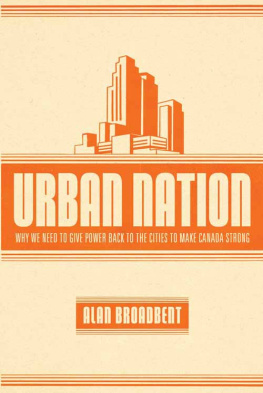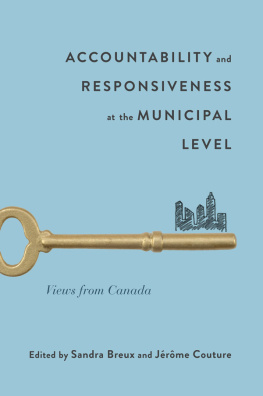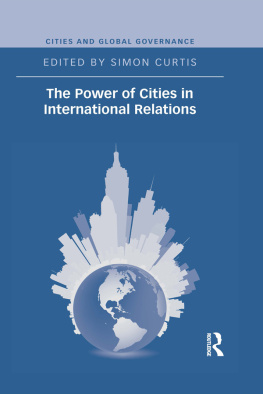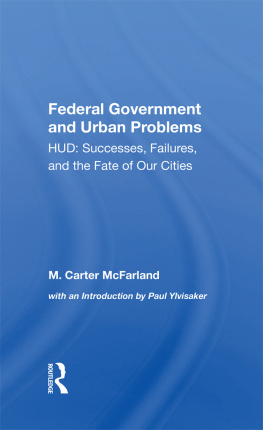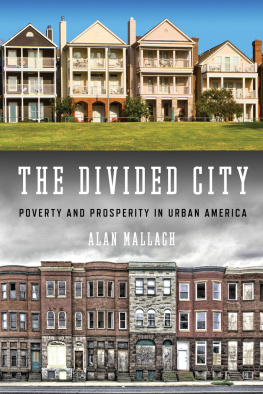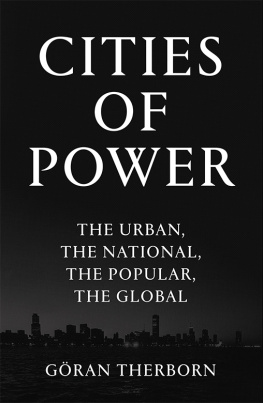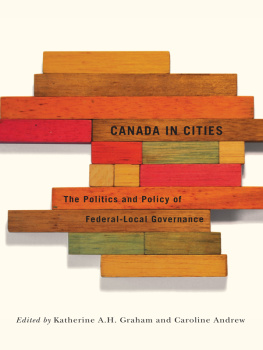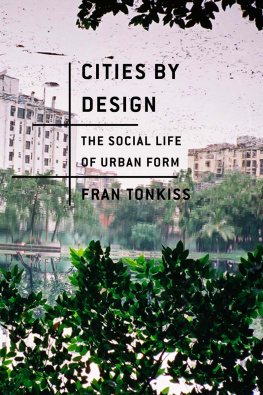Introduction
WITH GLOWING HEARTS
Canadas Invisible Cities
It started on March 3, 1993, at Torontos Sheraton Centre hotel across from City Hall, where a large and eager crowd gathered to hear a visionary immigrant challenge a member of the Canadian establishment on whether Toronto should declare its independence from Canadas Confederation and go it on its own. Or, at the very least, negotiate a new arrangement with the country. A lot of them had already made up their minds, and they were restless and ready to be inspired. Would they take to the streets, refuse to pay their taxes, or mount a mighty resistance to the unfairness they all sensed?
This could have been a scene from another age. It might have been John Alexander Macdonald from Glasgow, or William Lyon Mackenzie and his followers who surged up Yonge Street and mounted the 1837 rebellion against the Family Compact, or the anti-amalgamation crowd behind rebel former mayor John Sewell and Citizens for Local Democracy, the cyber-labelled C4LD, 160 years later.
In fact, it was something more sedate, but which had reverberations that began to change the conversation in Canada towards the plight of the big cities, a conversation that was picked up by a future prime minister, and one that fuelled municipal unrest into the start of the twenty-first century.
The visionary was Joe Berridge, a normally affable and well-mannered man occasionally given to provocative and inspiring commentary on the urban condition. Berridge was a well-known urban planner, a transplanted Welshman from up the ancient valleys who had worked as a Toronto city planner before forming his own firm, Urban Strategies, and who was on his way to becoming one of the top international planners working around the world. The prince of the establishment was now-Senator David Smith, a Toronto lawyer who had been a federal member of Parliament and a cabinet minister, and was one of the big movers and shakers in the Liberal Party of Canada. Smith represented Canada As We Know It, and Berridge was the challenger.
The occasion was a debate the Canadian Urban Institute staged on the topic, Should the Greater Toronto Area form a separate province within Canada?a play on the ongoing Canadian obsession with Quebec separation. Berridge argued for the motion, Smith against.
Berridge, in his compelling style, put the challenge dramatically: Heres the deal, Canada; give us our freedom, and well send you the money we send now through the federal wealth-sharing programs, indexed to inflation, forever. You only want Toronto for our money, he said. Well thrive unleashed from the strictures of federal and provincial governments, because well be able to construct policies and programs in a nimble way that will let us respond to international competitive challenges. His argument was based on the notion that the Toronto region was a dynamic economic producer of wealth, and that it contributed far more to the national coffers than it received back in tax-paid goods and services. These were the funds that were transferred to the less wealthy parts of the country through equalization payments and other grants, and which funded the large bureaucracies of those governments. But Toronto had to go to the federal and provincial governments to plead for the infrastructure that would fuel its economic growth, things like an improved airport, roads, rail service, and financial industry regulatory liberalization.
Smith replied that Canada was a great success, that we had a tried and true way of dealing with these things, that the constitutional mechanisms for change were complicated and arduous, that the federal and provincial governments would surely find ways to deal with local discontent, and that he was frankly a little surprised that the good people of Toronto did not recognize, and indeed were not more grateful for, all the things that the government did for them.
Berridge won the debate handily, as the audience divided over 90 percent for him. It was a room full of urban wonks, people who worked in municipal, provincial, and federal government departments, academics, politicians, and business people whose main markets were governments and their agencies. It was the first time I had heard Berridges argument put that strongly and in quite that way, and it fascinated me.
What if Toronto decided it wanted to separate from Canada? What if it took a page from Quebecs playbook and began to mount a separatist movement? What would be the response of the rest of the country to its claims of historic grievances, and to its grossly unfair treatment?
What might its grievances be? It is underrepresented in the House of Commons, with fewer seats than its population would warrant, and so doesnt enjoy representation by population. It annually sends much more money to Ottawa than it gets back in goods and services from the government. It has a citizenry that is distinctly different from the country as a whole, made up of close to 50 percent immigrants and 50 percent visible minorities. It is focused on the challenges of the new economy in the midst of a country still focused on the old economy. It consistently gets ignored as federal government support puts comedy museums in Montreal and infectious disease centres in Winnipeg. It gets less money per capita for social programs than other parts of the country. It is tired of being the cash cow of Confederation.
In many ways, Toronto has a better argument for distinct treatment than does Quebec, or even the Alberta firewall secessionists. Unlike Quebec, which is bought off year after year with more powers, more money, and more attention, or Alberta, for which Canada blackens its eye in the international environmental community by ignoring the massive pollution and contamination of its water resources so that the province can enrich itself on oil sands dollars, Toronto is expected to be the quiet donor to the federal coffers, enduring decade after decade of empty promises from federal leaders who only show up to speak at one of the huge fundraising dinners that keep their party machinery running.
Torontos role in Confederation, it seems, is to keep quiet and send money.
But the denizens of Canadas largest urban region are restless. And they are not alone. In Vancouver there is also a sense of unrest, as people are beginning to see that city occupying the same place in the context of British Columbia as Toronto does nationally. And even in Montreal, people are beginning to wonder why the golden goose of Quebec is propping up the rest of the province.
This is a story of Canadian cities coming of age, of having become over the last fifty years the dominant political entity in the country, and now realizing the inadequacy of the tools at hand to control their own destinies. The story plays out in city halls across the country as mayors and councils try to stretch municipal budgets to meet growing demands for goods and services while federal and provincial coffers overflow. The discontent that first erupted in Toronto has spread to other cities across the country as their leaders recognize the basic disconnection between the vast potential of our urban regions and the constraints our government structures put in the way. And it will play out in provincial legislatures and on Parliament Hill in Ottawa, as first ministers slowly realize that fealty to old constitutional structures is a precious conceit in a world where competing urban regions will blaze the arc of history.
Why Cities?
My interest in the topic of cities developed slowly. During the 1960s, when I was at the University of British Columbia, I read Jane Jacobs Death and Life of the Great American Cities (1961), which began to form in my awareness the city as a dynamic interplay of forces. And Jacobs 1984 book, Cities and the Wealth of Nations, really put cities in the forefront of my mind.

